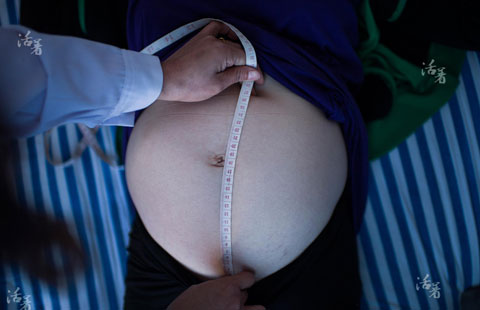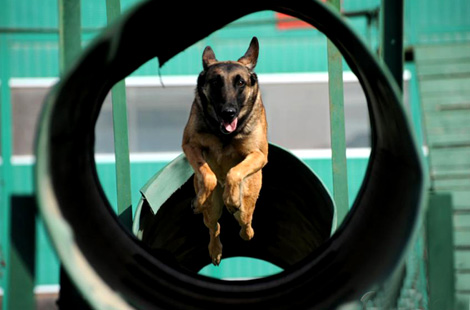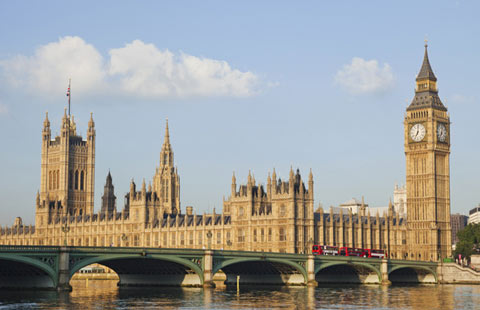UK brothers jailed for attending Syria terror camp
Updated: 2014-11-27 11:27
(Xinhua)
|
||||||||
LONDON - Two brothers from London became the first Britons to be jailed for alleged conspiracy to attend "terrorist training" in Syria, as Britain unveiled its toughest counter-terror legislation on Wednesday.
Mohommod Hassin Nawaz, 31, was sentenced to four and a half years in prison and his 23-year-old brother Hamza Nawaz, both from east London, was sentenced to three years in prison after appearing at the Central Criminal Court, known as Old Bailey in London Wednesday.
They are the first British citizens to be sentenced for terrorist offences after returning from Syria, London's Metropolitan Police said.
The sentences came at a time when Britain announced its newest counter-terror legislation, giving the country some of the "toughest" powers in the world to tackle the increasing threat from international terrorism.
Between January 2012 and September 2013, the two men conspired together to attend a place used for terrorist training knowing or believing that instruction or training would be provided there wholly or partly for purposes connected with the commission or preparation of acts of terrorism, police said.
The brothers were stopped at Britain's Dover port on Sept 16 last year, after arriving at the port on a ferry from Calais of France.
The men and their vehicle were searched, and police found a number of significant items, including five rounds of 7.62mm ammunition, "numerous" mobile phones and a SIM card containing images, video clips and text messages relating to the training camps.
The brothers were arrested on suspicion of being involved in the "commission, preparation or instigation of acts of terrorism" under British anti-terror law, according to the Metropolitan Police.
Counter terrorism investigators found that the brothers traveled to Syria between Aug 25 and Sept 16 in 2013 to attend a camp in order to "receive training in skills that could be used for the purposes of terrorism."
Officers found communications on their phones indicating that they had attended a terror training camp located in the Latakia Province of Syria. In May, the two men pleaded guilty to the crimes.
Counter Terrorism Acting Commander Terri Nicholson described the rulings as "the first in a series of landmark sentences".
"This comes at a time when the global concern about the threat posed by returnees is intensifying," he noted.
He urged communities and families to report "anyone they perceive may be vulnerable, a danger or showing signs of radicalization before they choose to travel."
Also on Wednesday, Britain's new Counter-Terrorism and Security Bill was presented to British Parliament, aiming to boost powers to disrupt the ability of people to travel abroad to fight, and reduce the risks they pose on their return, according to the Home Office.
The bill intends to provide the police with a temporary power to seize a passport at the border from individuals of concern, and create a Temporary Exclusion Order that will control the return of a British citizen suspected of involvement in terrorist activity abroad.
It also seeks to enhance the country's border security by toughening transport security arrangements around passenger data, "no fly" lists and screening measures.
The Home Office warned that the situation in Syria, the emergence of Islamic State (IS) and ongoing instability in Iraq present "significant dangers not just in the Middle East but in Britain and across the West".
In August, Britain upgraded its international terrorism threat level from "substantial" to "severe", the second highest of five possible threat ranks.

 The plight of pregnant women in rural China
The plight of pregnant women in rural China
 Rescue dogs show skills in NW China
Rescue dogs show skills in NW China
 Top 10 largest hotel chains in China
Top 10 largest hotel chains in China
 10 'mosts' about foreigners in China
10 'mosts' about foreigners in China
 DreamWorks-themed ice sculpture festival kicks off in Macao
DreamWorks-themed ice sculpture festival kicks off in Macao
 Folk art shines at East China fair
Folk art shines at East China fair
 Goodbye, my brothers!
Goodbye, my brothers!
 9 global hubs for renminbi trading
9 global hubs for renminbi trading
Most Viewed
Editor's Picks

|

|

|

|

|

|
Today's Top News
Microsoft to face $137m bill for back taxes
Partnership with private firms fuels China's growth
BMO Global Asset Management Launches ETFs in Hong Kong
BlueFocus aims to acquire Canadian company
Anti-corruption move gains traction
Maryland's new first lady thankful
Amazon answers China's 'Double 11' with Black Friday
Tencent-HBO deal can feed big appetite for content in China
US Weekly

|

|







